Medical news June 18: Prolonged severe pneumonia due to immunodeficiency
A general medical facility has just promptly treated a child patient who was repeatedly hospitalized for pneumonia and ear infections, and was hospitalized for a month, due to immunodeficiency.
Severe persistent pneumonia due to immunodeficiency
5-year-old Quan in District 12 had a high fever, cough with phlegm, and a runny nose with green discharge. He went to the clinic and was diagnosed with pharyngitis and prescribed antibiotics for a week. On the 7th day, his condition did not improve, he still had a high fever, coughed up a lot of phlegm, and ate less, so his family took him to the hospital for examination.
 |
| A general medical facility has just promptly treated a child patient who was repeatedly hospitalized for pneumonia and ear infections, and was hospitalized for a month, due to immunodeficiency. |
X-ray results confirmed bronchopneumonia, left pleural effusion, blood tests suggested infection.
Through medical history, the family said that Quan was hospitalized many times for pneumonia and otitis media, each treatment lasting 1-3 weeks. The most recent time was at the end of March 2024, Quan was treated for pneumonia at a hospital but did not respond to antibiotics, and was hospitalized for 24 days. He relapsed 3 months after being discharged from the hospital.
Dr. Vo Thi Minh Tuyen, Department of Pediatrics, Tam Anh General Hospital, Ho Chi Minh City, said that doctors suspect this recurrent infection is due to immunodeficiency.
The baby's blood was taken to test for immunoglobulins IgG, IgM and IgA. These are components that play a role in the immune system, responsible for fighting infections caused by agents such as bacteria, viruses, fungi, parasites, etc.
The result was that the baby lacked all of these antibodies, confirming congenital immunodeficiency. Of which, IgG antibodies were very low, only 3.12 mg/dL (normal threshold is 540-1822 mg/dL).
Due to immunodeficiency, Quan's body is absent or defective in one or more key components of the immune system.
As a result, the body is unable to fight off agents such as viruses and bacteria. “This is the reason why the child is constantly sick, requires prolonged treatment, and relapses many times,” Dr. Tuyen explained.
Immunodeficiency is often divided into two large groups, primary (congenital) and secondary (acquired) (HIV infection, use of immunosuppressive drugs, radiotherapy, etc.).
In the US, the rate of primary immunodeficiency is estimated to be 1 in 2,000 people. According to the National Institute of Pediatrics, in Vietnam, it is estimated that there are about 9,000 people with the disease, of which only about 450 patients have been diagnosed and treated nationwide (accounting for nearly 5%).
According to Dr. Tuyen, when the body is invaded by external agents, the immune system will detect and attack them. Children with immunodeficiency, the immune system cannot function, or is severely damaged, the child is at risk of severe, recurrent infections, which can damage many organs in the body or can be fatal.
To treat Quan, the doctor used intravenous antibiotics to treat pneumonia, combined with gamma globulin infusion.
This is a sterile preparation containing concentrated antibodies made from human plasma. Globulin is used to enhance the ability of the immune system to reduce the risk of infection.
After 10 days of hospitalization and intravenous infusion, Quan was retested for immunoglobulin IgG, IgM and IgA levels. The antibody levels returned to near normal levels, and the baby was discharged and returned for a follow-up appointment.
Babies with conditions like Quan’s can still be prevented from infections if they are given monthly antibody infusions, helping them learn, play, and live healthily. Depending on the cause of the immunodeficiency, other treatments include stem cell transplantation (bone marrow transplant), enzyme replacement therapy, interferon replacement, etc.
Dr. Tuyen recommends that children with congenital immunodeficiency have recognizable signs including recurrent infections in the ears, sinuses, lungs, skin, meninges, prolonged diarrhea, fungal skin infections, etc., prolonged infections, poor response to treatment, severe infections, malnutrition, slow weight gain, etc.
If detected early and treated promptly, children will be able to have a better quality of life.
For the treatment to be effective, parents need to take good care of their children, reduce the risk of viruses and bacteria, such as bathing, washing hands regularly with soap, and brushing teeth regularly.
Doctors recommend that children should exercise regularly, have a healthy diet, and avoid taking them to places with dangerous epidemics or contact with people with infectious diseases.
Successfully saved a case of cardiac arrest
With the support of resident doctors at Hanoi Medical University Hospital, district-level medical facilities in remote areas in Lao Cai have deployed many techniques, including cardiopulmonary resuscitation, providing the best quality of care and treatment for patients.
The male patient (born in 1956) was treated at Van Ban District General Hospital, Lao Cai with a diagnosis of heart failure EF 15%, chronic obstructive pulmonary disease. Previously, the patient was treated at Lao Cai Provincial Hospital for 2 weeks, had a tracheostomy and was transferred to Van Ban District General Hospital for further treatment.
During treatment at Van Ban District General Hospital, the patient's condition was stable, but he suddenly lost consciousness. Together with the doctors from the Emergency Department here, Dr. Nguyen Van Anh, Department of Emergency and Intensive Care, Hanoi Medical University Hospital immediately approached the patient.
Doctors assessed that the patient had signs of circulatory arrest, so they implemented an advanced circulatory arrest emergency protocol. After more than 30 minutes with 4 electric shocks, along with the use of emergency drugs such as adrenaline, lidocaine, magnesium sulfate, etc., the patient gradually regained circulation.
Because the patient was detected early, and at the same time, medical staff at the emergency department of Van Ban District General Hospital were retrained in cardiopulmonary resuscitation, the approach, assessment and treatment were extremely quick.
After emergency treatment, the patient regained full consciousness, had his vasomotor removed, and was on ventilator support. Currently, the patient has had his tracheostomy tube removed, has been discharged from the hospital, and is returning to normal life at home.
Recently, Hanoi Medical University Hospital has sent many groups of resident doctors to poor districts, remote areas of Lao Cai province to create opportunities for people here to access increasingly better quality medical services, limit unnecessary transfers, and contribute to reducing overload at upper-level hospitals.
The above patient was fortunate to have his circulatory arrest successfully treated at the district level.
When working at this medical facility, Dr. Anh discussed with colleagues at Van Ban Hospital about cardiopulmonary resuscitation.
Therefore, as soon as the patient suddenly lost consciousness during a hospital briefing, the nurse in the ward approached and immediately performed CPR after assessing for cardiac arrest. At the same time, she urgently alerted other medical staff. Doctors arrived shortly after, and the CPR procedure was implemented.
Sharing about the time of emergency care, Dr. Anh said that normally, cases of cardiac arrest lasting 30 minutes have a very low expectation of the heart beating again.
According to doctors, cardiac arrest is a common emergency at Hanoi Medical University Hospital, but is rare in district hospitals.
According to doctors at Hanoi Medical University Hospital, to improve the effectiveness of emergency care, training, especially advanced cardiopulmonary resuscitation training, needs to be conducted regularly for medical staff.
The professional support cooperation program between Hanoi Medical University Hospital and Van Ban District General Hospital in particular and district hospitals of Lao Cai province in general has contributed to improving the quality of medical care and patient care.
Source: https://baodautu.vn/tin-moi-y-te-ngay-186-viem-phoi-nang-keo-dai-do-suy-giam-mien-dich-d217885.html



![[Photo] "Beauties" participate in the parade rehearsal at Bien Hoa airport](https://vstatic.vietnam.vn/vietnam/resource/IMAGE/2025/4/11/155502af3384431e918de0e2e585d13a)


![[Photo] Looking back at the impressive moments of the Vietnamese rescue team in Myanmar](https://vstatic.vietnam.vn/vietnam/resource/IMAGE/2025/4/11/5623ca902a934e19b604c718265249d0)

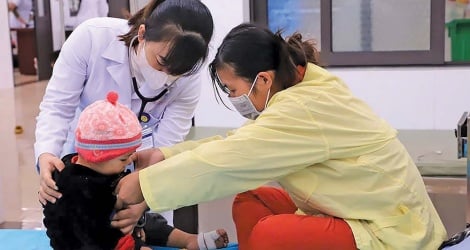

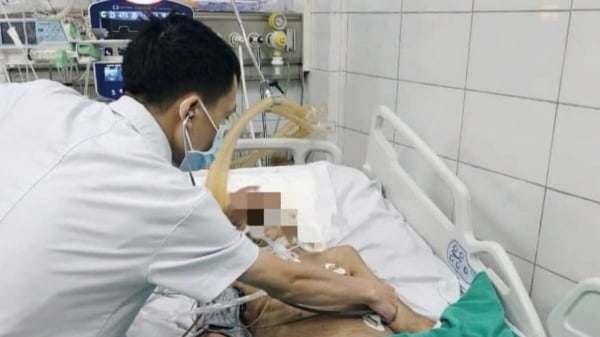

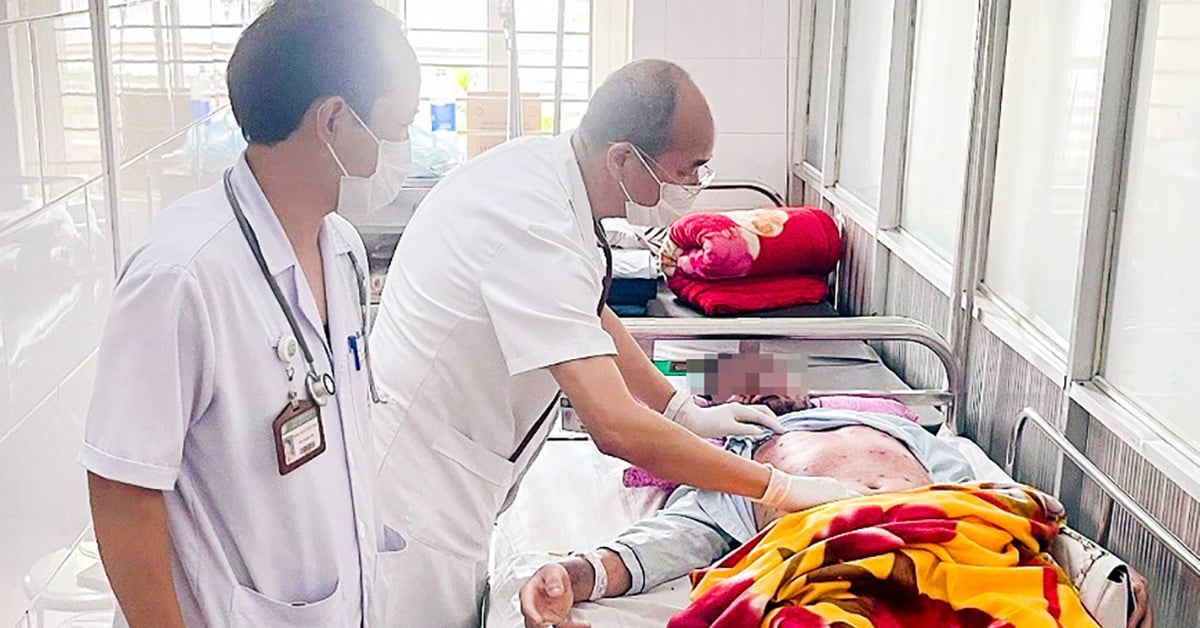

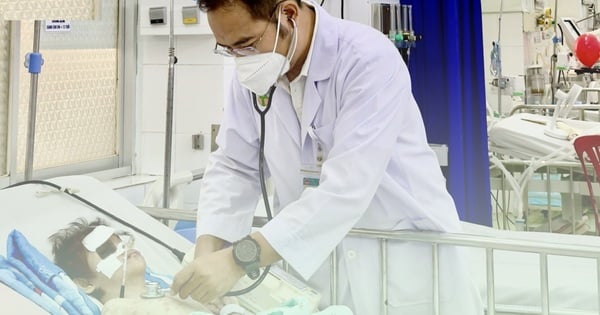

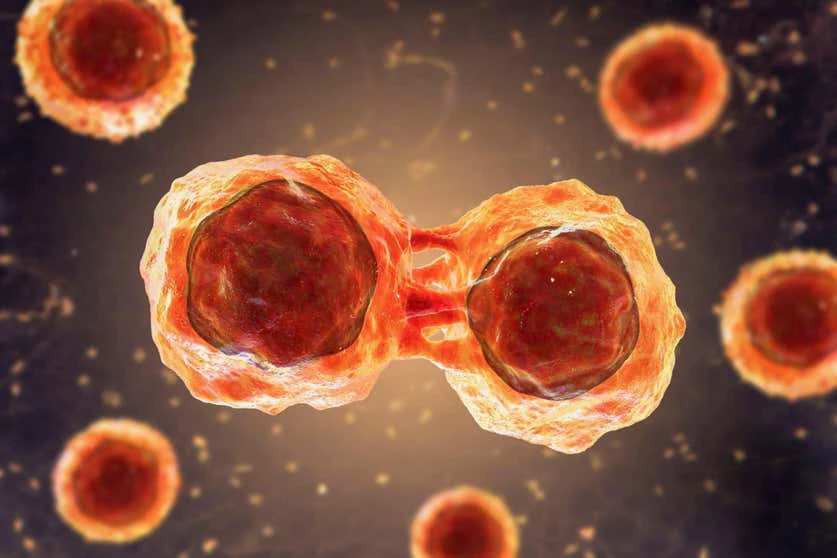



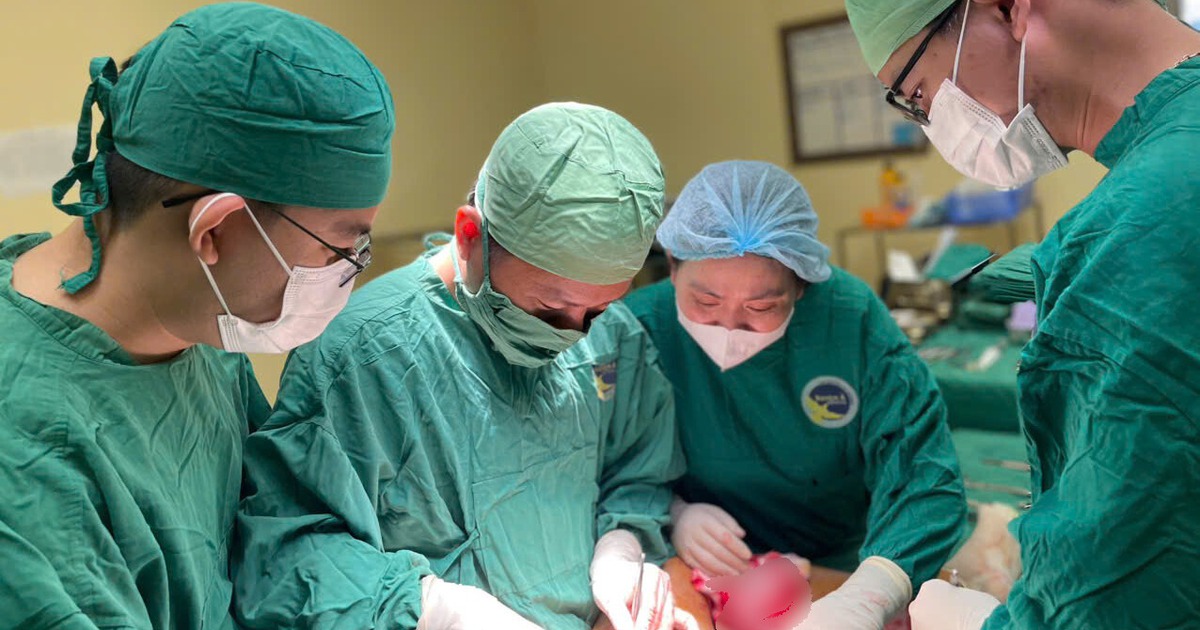
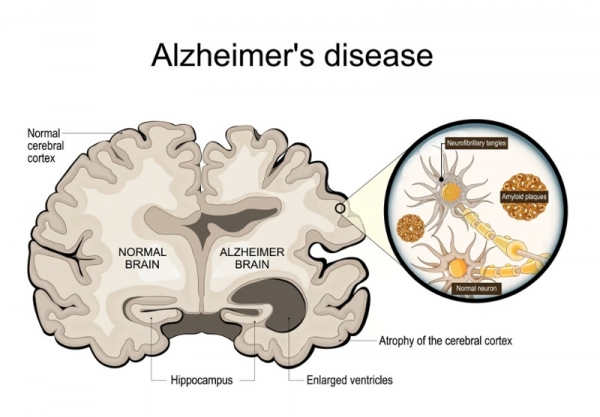

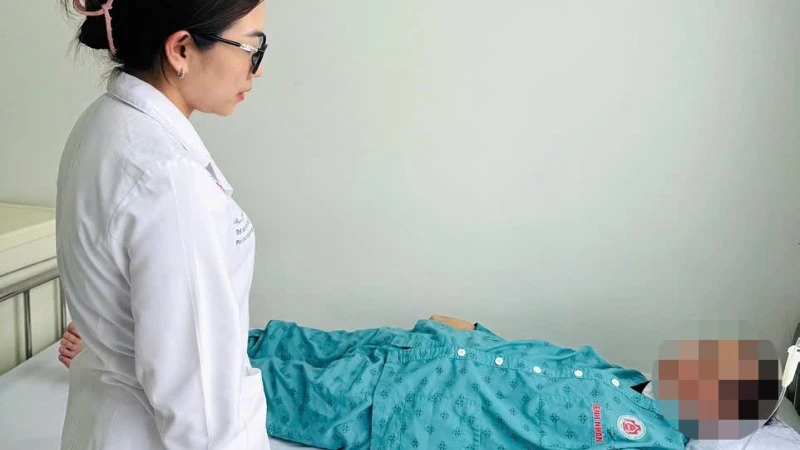










![[Photo] Summary of parade practice in preparation for the April 30th celebration](https://vstatic.vietnam.vn/vietnam/resource/IMAGE/2025/4/11/78cfee0f2cc045b387ff1a4362b5950f)





























































Comment (0)